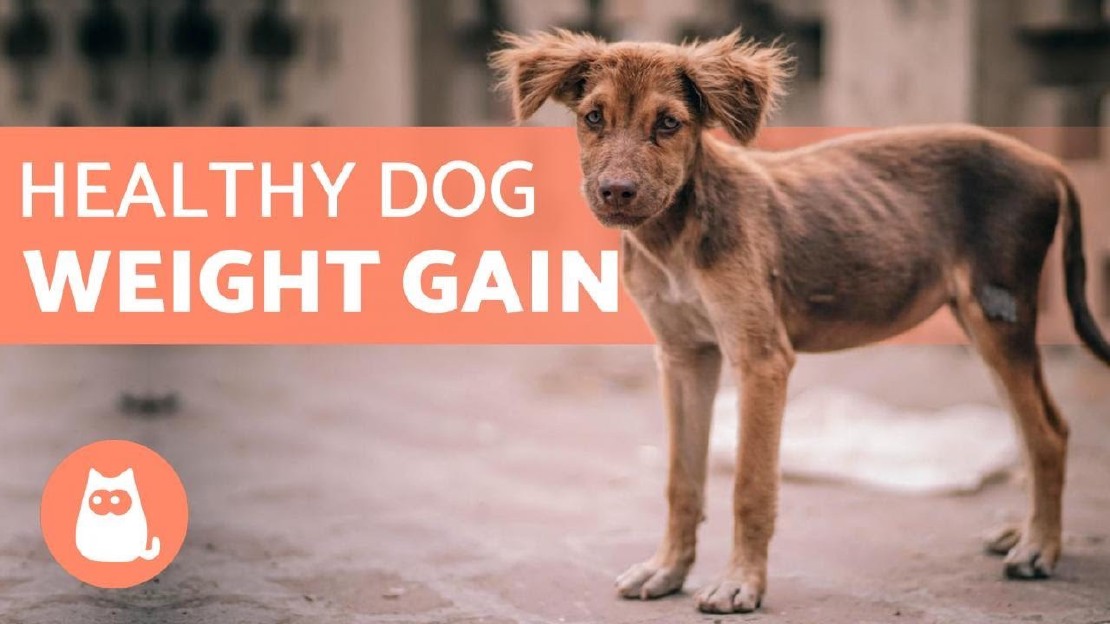Why do dogs lick your face?
Why dogs lick your face? Dogs are known for their affectionate nature and one common way they show their love is by licking their owners’ faces. …
Read Article
Is your dog underweight and in need of some extra pounds? Finding the right dog food to help your pup gain weight can be a challenge, but with the right information, you can make the best choice for your furry friend. Whether your dog has a fast metabolism or needs to recover from an illness, providing them with the right nutrients is essential to help them reach a healthy weight.
When it comes to choosing a dog food for weight gain, it’s important to look for high-quality ingredients that are packed with protein and healthy fats. Protein is essential for muscle development, while fats contribute to weight gain. Additionally, look for dog foods that are rich in essential vitamins and minerals to support your dog’s overall health. Avoid dog foods that contain fillers and artificial ingredients, as these provide little nutritional value and can be harmful to your dog’s health.
Some of the best options for dog foods to help your underweight dog gain weight include formulas that are specifically designed for weight gain, such as those labeled as “high calorie” or “weight management.” These formulas tend to have higher levels of protein and fat to encourage healthy weight gain. Alternatively, you can also consider adding supplements to your dog’s diet, such as omega-3 fatty acids or meal toppers, to increase their caloric intake.
Remember to consult with your veterinarian before making any changes to your dog’s diet, especially if they have underlying health conditions. Your vet can provide personalized recommendations based on your dog’s specific needs and ensure that they are on the path to a healthy weight gain.
If your dog is underweight, it’s important to address their nutritional needs to help them gain weight in a healthy manner. Here are some top factors to consider when feeding an underweight dog:
Remember to consult with a veterinarian for personalized advice tailored to your dog’s specific needs. They can provide guidance on the best diet and feeding plan to help your underweight dog reach a healthy weight.
If your dog is underweight and needs to gain weight, it’s important to choose a high-calorie dog food that will provide them with the necessary nutrients and energy. Here are some options to consider:
In addition to choosing a high-calorie dog food, it’s important to feed your dog frequent meals throughout the day. This can help increase their calorie intake and promote weight gain. You may also consider adding healthy, high-calorie supplements to their diet, such as coconut oil or salmon oil.
Remember, it’s always best to consult with your veterinarian before making any changes to your dog’s diet, especially if they are underweight or have any underlying health conditions. They can provide specific recommendations based on your dog’s individual needs and help ensure they gain weight in a safe and healthy way.
If your dog is underweight and needs to gain weight, it’s important to feed them a diet that is well-balanced and nutritious. Here are some tips to help you ensure healthy weight gain in your underweight dog:
Remember, it’s important to feed your underweight dog a balanced and nutritious diet to ensure healthy weight gain. Consult with your vet for personalized advice and recommendations based on your dog’s specific needs.
There are several signs that indicate a dog is underweight. These may include visible ribs, a skinny appearance, the lack of a defined waistline, and easily felt bones. Other signs may include a dull coat, lack of energy, and a decreased appetite.
No, it is not normal for dogs to be underweight. A healthy dog should have an ideal body condition, which means they should be at an optimal weight for their breed and size. Being underweight can indicate underlying health issues or poor nutrition.
Feeding your underweight dog a high-quality, calorie-dense diet is important to help them gain weight. Look for dog foods that are specifically formulated for weight gain or have a higher fat content. You may also consider adding supplements such as fish oil or canned pumpkin for added calories.
The time it takes for a dog to gain weight can vary depending on several factors, including the dog’s age, overall health, and metabolism. In general, you can expect to see gradual weight gain over a period of several weeks to a few months. However, it is important to consult with your veterinarian for a more accurate timeline based on your dog’s specific needs.
Why dogs lick your face? Dogs are known for their affectionate nature and one common way they show their love is by licking their owners’ faces. …
Read ArticleWhy dogs are more loyal than cats? Dogs have long been known as man’s best friend, and their loyalty is one of the key reasons for this title. …
Read ArticleWhy is my dog poop green and slimy? Seeing green and slimy poop in your dog’s stool can be alarming, but it is important to understand that …
Read ArticleWhy is the side of my dogs mouth swollen? Swelling on the side of a dog’s mouth can be a cause for concern for pet owners. There are several …
Read ArticleWhy is my dog panting when it isnt hot? Panting is a natural behavior for dogs, as it helps them regulate their body temperature. However, if your dog …
Read ArticleWhy is my senior dog barking all the time? As your dog ages, you may start to notice changes in their behavior, one of which may be excessive barking. …
Read Article